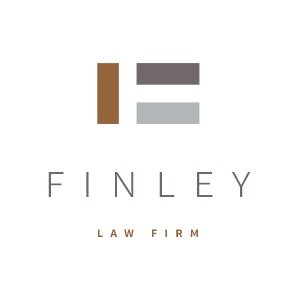Best Corporate & Commercial Lawyers in Des Moines
Share your needs with us, get contacted by law firms.
Free. Takes 2 min.
List of the best lawyers in Des Moines, United States
United States Corporate & Commercial Legal Articles
Browse our 1 legal article about Corporate & Commercial in United States written by expert lawyers.
- United States NY LLC Transparency Act 2026 Compliance Guide
- The federal Corporate Transparency Act (CTA) and New York's LLC Transparency Act are separate regimes: reporting to FinCEN does not satisfy New York's 2026 state filing requirement. Most small corporations and LLCs in the United States must file Beneficial Ownership Information (BOI) with FinCEN starting 2024, unless a specific federal... Read more →
About Corporate & Commercial Law in Des Moines, United States
Corporate and commercial law in Des Moines, Iowa, covers the legal framework that governs the creation, operation, and regulation of businesses. Whether you are starting a small business, expanding a corporation, entering contracts, or navigating regulatory matters, this area of law sets the rules for operating commercially and conducting transactions within the city and state. Corporate law focuses on the lifecycle of businesses such as formation, mergers, acquisitions, and dissolution, while commercial law deals with contracts, sales, commercial leases, and trade practices. Des Moines is a significant business hub in the Midwest, making reliable legal guidance crucial for companies operating here.
Why You May Need a Lawyer
There are many situations where individuals or business owners in Des Moines may require legal help in corporate and commercial matters. Common reasons include:
- Forming a new business entity, such as an LLC, corporation, or partnership
- Drafting, reviewing, or negotiating contracts and commercial agreements
- Handling mergers, acquisitions, or the sale of a business
- Dealing with employment issues, compliance, or regulatory challenges
- Resolving shareholder, partner, or member disputes
- Navigating tax, zoning, and licensing requirements
- Managing intellectual property and trade secrets
- Addressing commercial real estate transactions and leases
- Advising on risk management and liability protection
- Assisting with dissolution or restructuring of a business
A corporate and commercial lawyer can help you understand your legal obligations and rights, minimize risks to your business, and provide representation in any disputes or litigation.
Local Laws Overview
Des Moines businesses operate under both Iowa state law and applicable city ordinances. Key local legal aspects include:
- Business Formation: Iowa law governs different entity types such as corporations, LLCs, and partnerships. Registration with the Iowa Secretary of State is required, along with local business licenses from the City of Des Moines where applicable.
- Contracts: Iowa’s commercial statutes and the Uniform Commercial Code (UCC) shape contract creation and enforcement. Written contracts are highly recommended in commercial transactions.
- Employment Law: Employers must comply with both federal and Iowa regulations regarding hiring, employment practices, wages, workplace safety, and discrimination prevention within Des Moines workplaces.
- Taxation: Iowa imposes state corporate income tax, sales and use tax, and other local business taxes. Companies operating within Des Moines may also need to address city-specific licenses or permits.
- Litigation & Dispute Resolution: Disputes can be resolved in state courts located in Des Moines or through alternative dispute resolution methods such as mediation or arbitration, when agreed upon.
- Zoning & Real Estate: Local zoning laws regulate property use, development, and leasing. The City of Des Moines Planning and Urban Design division oversees these requirements.
- Regulatory Compliance: State and local agencies regulate industries such as financial services, insurance, healthcare, manufacturing, and food services. Compliance failures can result in fines or loss of business licenses.
Frequently Asked Questions
What type of business entity should I choose for a new business in Des Moines?
The best choice depends on your business goals, liability concerns, and tax considerations. Common entity types include sole proprietorships, partnerships, limited liability companies (LLCs), and corporations. A lawyer can explain the pros and cons of each for your particular situation.
How do I register my business in Des Moines?
You must register your business with the Iowa Secretary of State. Local requirements may include additional city licenses or permits, depending on the nature and location of your business.
Are written contracts required for commercial transactions?
While not all agreements must be in writing, written contracts are strongly recommended to protect all parties and facilitate enforcement if a dispute arises. Certain types of agreements like real estate sales must be in writing according to state law.
What should I include in my operating agreement or bylaws?
An operating agreement (for LLCs) or bylaws (for corporations) typically outline procedures for management, profit sharing, dispute resolution, and member or shareholder rights. Local and state rules may affect required provisions.
What regulations apply to hiring employees in Des Moines?
Employers must comply with both federal and Iowa employment laws, including anti-discrimination statutes, wage and hour requirements, workers compensation, and local ordinances. Additional industry-specific rules may also apply.
How do I handle a dispute with a business partner or shareholder?
Disputes are typically handled according to terms outlined in your partnership agreement, operating agreement, or bylaws. If agreement cannot be reached, mediation, arbitration, or litigation may be necessary, often in Polk County courts.
What tax obligations do Des Moines businesses have?
Businesses are generally subject to federal, state, and sometimes local taxes, including corporate income, sales, and use taxes. Registration with the Iowa Department of Revenue is required for most tax types.
Do I need a business license to operate in Des Moines?
Many businesses require local licenses or permits in addition to state registration. Requirements depend on your business type and where you operate within the city.
What should I know about commercial leases in Des Moines?
Commercial leases in Des Moines are subject to Iowa contract law. Key considerations include duration, rent terms, property use restrictions, maintenance responsibilities, and options for renewal or termination.
How can a lawyer help if my business is sued or involved in a dispute?
A lawyer can assess your case, represent you in negotiations or court, help gather evidence, and work to protect your interests and reputation. Early legal intervention often improves outcomes and may avoid prolonged litigation.
Additional Resources
Several resources can provide support or guidance for those seeking legal advice in corporate and commercial matters:
- Iowa Secretary of State - Business registrations and filings
- Iowa State Bar Association - Legal resources and lawyer referral service
- Greater Des Moines Partnership - Business support and local regulations
- Iowa Department of Revenue - Information about business taxes and compliance
- City of Des Moines Economic Development - Guidance on permits, zoning, and city regulations
- Small Business Development Center (SBDC) Iowa - Support services for entrepreneurs
- Des Moines Civil & Small Claims Court - Dispute resolution and litigation information
Next Steps
If you need legal assistance with a corporate or commercial matter in Des Moines, consider the following steps:
- Identify your specific needs, such as business formation, contracts, disputes, or compliance
- Gather relevant documents, including contracts, business records, and communication with other parties
- Consult with a qualified corporate or commercial lawyer who is experienced in local and state laws
- Prepare questions for your lawyer about your options, rights, and potential risks
- Follow up on regulatory or licensing requirements with appropriate state or city offices
- Stay proactive about compliance and legal changes that could affect your business
Seeking legal advice early can prevent costly mistakes and ensure smoother business operations. Legal professionals in Des Moines have the expertise to guide you through the complexities of corporate and commercial law and help you achieve your objectives confidently.
Lawzana helps you find the best lawyers and law firms in Des Moines through a curated and pre-screened list of qualified legal professionals. Our platform offers rankings and detailed profiles of attorneys and law firms, allowing you to compare based on practice areas, including Corporate & Commercial, experience, and client feedback.
Each profile includes a description of the firm's areas of practice, client reviews, team members and partners, year of establishment, spoken languages, office locations, contact information, social media presence, and any published articles or resources. Most firms on our platform speak English and are experienced in both local and international legal matters.
Get a quote from top-rated law firms in Des Moines, United States — quickly, securely, and without unnecessary hassle.
Disclaimer:
The information provided on this page is for general informational purposes only and does not constitute legal advice. While we strive to ensure the accuracy and relevance of the content, legal information may change over time, and interpretations of the law can vary. You should always consult with a qualified legal professional for advice specific to your situation.
We disclaim all liability for actions taken or not taken based on the content of this page. If you believe any information is incorrect or outdated, please contact us, and we will review and update it where appropriate.
Browse corporate & commercial law firms by service in Des Moines, United States
Des Moines, United States Attorneys in related practice areas.















